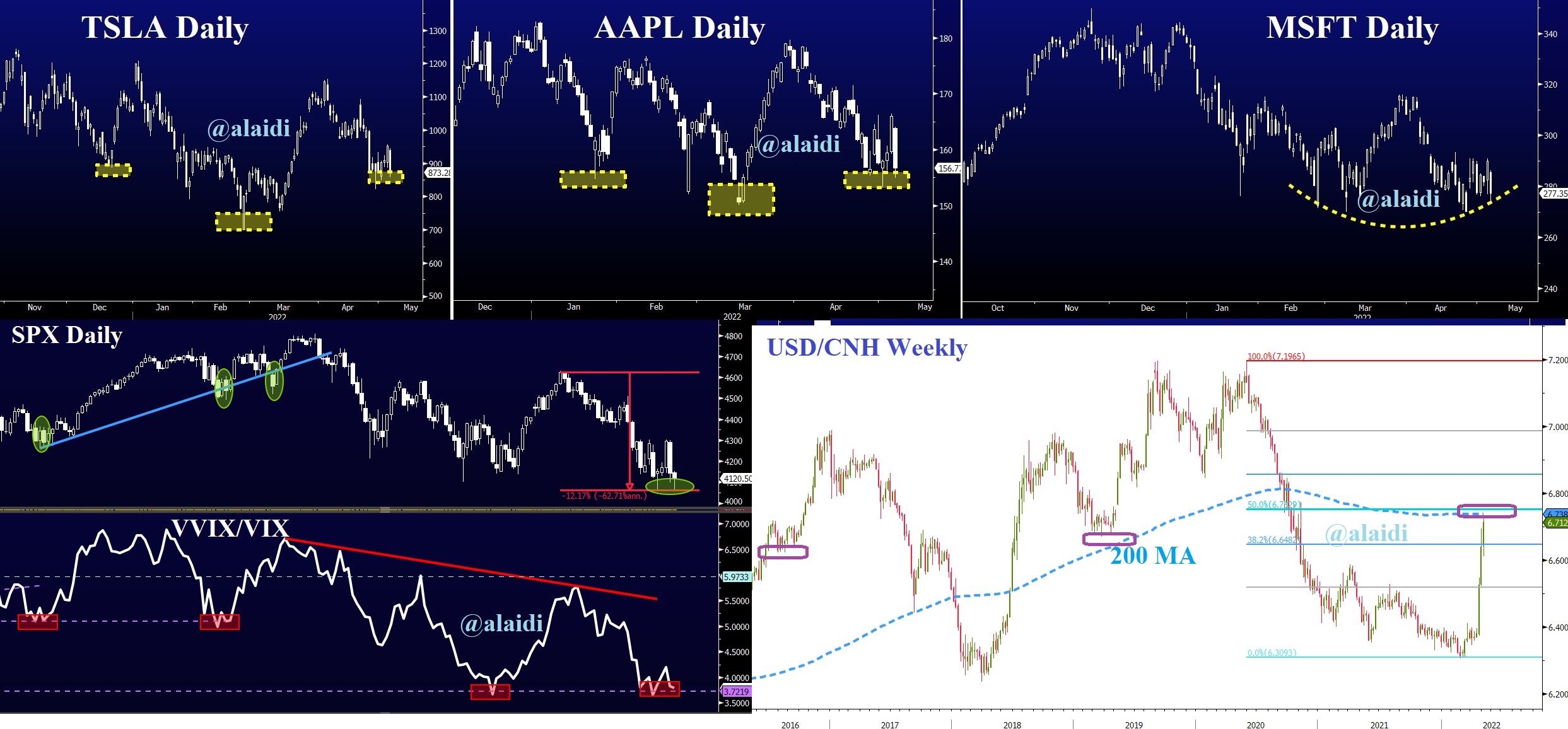Just as traders learn to forget the buy-the-dip habit and embrace selling-the-bounce instincts, in comes Friday's attempt to reverse indices into the green.
A higher S&P 500 close last week would have been the first positive Friday close since Mar. 25. What this really means, is that equity indices have not had a positive Friday close since reaching the intermediate peak of Mar. 29.
Friday's closing action tends to be quite relevant as it reflects traders' willingness or preference towards risk ahead of the weekend. What was different this week, were the TAMS—Tesla-Apple-Microsoft.

Before looking ahead, let's highlight some hard lessons of the past 2 weeks. The SPX fell 9% in April (a seasonally strong month), which was the biggest April decline since April 1970, when the index fell by the same magnitude.
The Dow's 4.9% April drop was also the worst April since 1970, when it fell 6%. You would have to go back to the "Kennedy Slide of 1962" to find April declines greater than 1970.
NASDAQ fell 13% in April, the worst since the 14% plunge in April 2000. Lessons from these statistics tell us that long-standing seasonalities are often broken by meaningful developments. “This-time-is-different” tends to be relevant here.
The 2nd lesson (more of a reminder) is the presence of bear market rallies. When you see indices end the session up 1%-2% after reversing an intraday drop of 1%-2%, remember to curb your bullish hopes as such violent reversals are more prevalent during falling markets.
Said differently, such intraday volatility is more common during uncertain times, but rarely during “healthy” markets.
With the weight of the Fed and NFP behind us, there remains the comforting prospect of positive technical price action from Apple (NASDAQ:AAPL), Microsoft (NASDAQ:MSFT) and Tesla (NASDAQ:TSLA)helping to defend technology, consumer staples and beyond.
As for the double bottom in VVIX/VIX mentioned here,we remain above the worrying support line of 3.5.
In FX, the most striking development was GBP's break after the BoE's dovish rate hike, as well as USD/CNH's ascent towards its 200-week MA.
Notably, G10 currencies held their own vs the USD during Thursday's all-round plunge in indices. This also helped re-emergence of speculation of an earlier than anticipated ECB rate hike.
